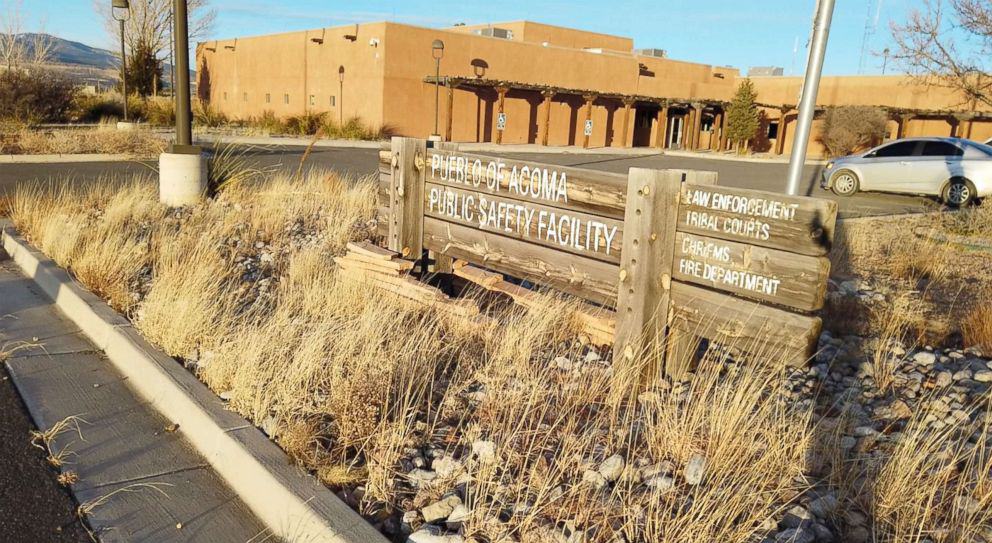Charles Riley, a member of the Native American Pueblo of Acoma in New Mexico, did something he hasn’t done in over a month.
He went back to work.
As a federal employee at the Bureau of Indian Affairs, Riley was among the 800,000 federal workers who went without pay for weeks during the longest government shutdown in American history.
He is also one of more than 240,000 American Indians who work for the government, according to census data. American Indian communities say they were more acutely impacted by the government shutdown because tribal members faced more limited health care services and programs like food distribution, schools, and even law enforcement were operating with barebones staff and minimal, if any, funding.
Part of the agreement between sovereign tribal states and the federal government is that federal agencies provide services like education, infrastructure and food assistance, many of which were impacted during the shutdown.
Riley contemplated dipping into his life insurance account just days before the shutdown ended.
“It’s become more of a mental burden more than anything else,†he said.
 Rachel Scott/ABC News
Rachel Scott/ABC NewsIn an emotional interview with ABC News, he said his family worked hard, struggling financially to provide for their three children — and now their lives were flipped upside down through no fault of their own.
“It’s just really a shame for people who are public servants and want to do a good job for the people of the United States,†he said.
Now, as some federal workers, including Riley, recover from the effects of the last government shutdown, they are also preparing for what could be another possible shutdown if Congress and President Trump do not reach a deal by Feb. 15.
 Rachel Scott/ABC News
Rachel Scott/ABC News“There is fear, anxiousness, and anger of potentially having to deal with another shutdown and possibly having to go through the same emotional, mental and financial stresses all over again,” he said. “It can be pretty demoralizing at times.â€
While the temporary deal to end the shutdown brought some relief, Riley is concerned about the long-term effects it will have on Native American communities.
“We are just a forgotten people. Every year our tribal leaders have to go back and educate our members of Congress,†he said.
Riley, a 20-year federal employee, has been through a few government shutdowns but due to its length, the recent stalemate is prompting serious concerns over the long-term effects for the Pueblo of Acoma, his Native American community.
Indigenous communities rely heavily on federal funding, which have been promised to tribes based on treaties. On the reservation, schools, emergency services, child services, food and health care are often dependent on government funds. Brian Vallo, the governor of the Pueblo of Acoma, said the frequency and length of government shutdowns bring additional problems.
 Rachel Scott/ABC News
Rachel Scott/ABC News“President Trump makes statements about how he will do anything he needs to access funding for a construction of a wall and if that meant that a shutdown continued through the reminder of the fiscal year, then we have a problem,†Vallo said.
Vallo spoke with ABC News just one day after the government shutdown came to a temporary end. But his tribe had to be proactive in bracing for another one if a deal falls through.
“This is when we are going to experience closure of schools, we don’t have to access to food issued by USDA to assist our families that are already struggling. It means we have issues around our ability to over protection around our community. Law enforcement would be impacted, ambulatory transplant services would be impacted, and I suppose our hospital would no longer be able to provide the basic services they currently offer,†Vallo added.
The threat is tremendous, he said.
Riley’s daughter, Rebecca, wrote to New Mexico Sen. Tom Udall to express her concerns for her own family and her communities.
“I’m not a federal employee but it’s affecting me,†she said.
“I felt helpless at that point … No family should be forced to feel this feeling of helplessness when it was no fault of their own,†she continued.
Rebecca Riley met with Udall, a Democrat, and other affected families in the state, hoping the senator would take their concerns could spark action.
Udall introduced legislation last week that would seek to protect tribes from future government shutdowns or lapses in funding by guaranteeing money for the programs they use similar to how Department of Veteran Affairs programs are funded. Indian Programs Advance Appropriations Act (IPAAA) would authorize advance appropriations for Indian Health Service (IHS) programs, Bureau of Indian Affairs (BIA) programs, and contract support costs for tribes that opt to take over operation of IHS and BIA.
“It takes a long time to get it up and running again. And what’s happened in the course of that period of getting it up and running again and having it shut down is you’ve lost a lot of effectiveness in the community, people have become discouraged, it’s just a very very devastating thing to see happen,†Udall said on a call with reporters.
 Rachel Scott/ABC News
Rachel Scott/ABC NewsW. Ron Allen, chairman of the Jamestown K’Sklallam Tribe in Washington state, said people forget that a number of communities in Indian Country face high unemployment and are at the bottom of many other economic and social indicators.
“Those kinds of issues, the substance abuse and economic challenges we have, basic welfare, these treaty and trust obligations are fundamental and we should not be subject to the political politics of Washington, D.C., underscore that, for crying out loud, at least you can help those that have the greatest need and we are certainly top of he list in terms of those challenges and these shutdowns or CRs are very challenging for our communities,” Allen said.
 Rachel Scott/ABC News
Rachel Scott/ABC NewsIn letters to members of Congress, tribal leaders said the shutdown limited health care services available to tribal communities, schools are operating without maintenance funds, food distribution programs are threatened, and law enforcement is stretched thin.
Some tribes have reserves or are able to borrow money to keep services going, but others say they have to limit or even suspend services without funding.
Vallo believes the government is hurting communities that are already at a disadvantage.
“The federal government has a trust responsibility to offer these basic services to our community and other native American tribes… that is the commitment that federal leadership made years ago and as the pot has grown much smaller, we are already at a disadvantage,†he said.
As Native American communities continue to grow, Vallo said the federal funding remains limiting. In return, tribes throughout the country continue to extract from that “small pot†of federal funding that exists.
“Tribes have worked very hard to establish economic development on our lands, these efforts have allowed us to supplement these programs that should already be fully funded by the federal government but we are now supplementing these programs because there is not enough federal funding,†he said.




